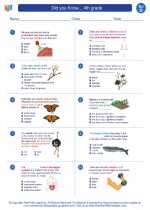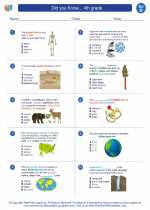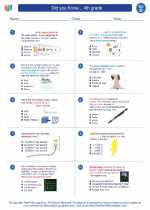Digestive System
The digestive system is a group of organs working together to convert food into energy and basic nutrients to feed the entire body. Food passes through a long tube inside the body known as the alimentary canal or the gastrointestinal tract (GI tract).
Organs of the Digestive System
- Mouth: Food enters the digestive system through the mouth where it is chewed and mixed with saliva.
- Esophagus: The esophagus is a muscular tube that connects the mouth to the stomach.
- Stomach: In the stomach, food is mixed with acids and digestive juices to break it down into a liquid or paste.
- Small Intestine: This is where most of the digestion and absorption of nutrients occur.
- Large Intestine: The large intestine absorbs water and contains the remaining waste material.
- Liver: The liver produces bile, which helps digest fat, and also helps detoxify the body.
- Pancreas: The pancreas produces digestive enzymes and hormones to regulate blood sugar levels.
Processes of Digestion
The digestive system performs several processes to break down and absorb nutrients from food, including:
- Ingestion: Taking food into the mouth.
- Digestion: Breaking down food into smaller molecules that can be absorbed into the bloodstream.
- Absorption: The process by which nutrients pass through the lining of the small intestine into the bloodstream.
- Elimination: The body gets rid of indigestible food through the rectum and anus in the form of feces.
Study Guide
Here are some key points to remember about the digestive system:
- The digestive system is responsible for breaking down food and absorbing nutrients.
- Organs of the digestive system include the mouth, esophagus, stomach, small intestine, large intestine, liver, and pancreas.
- Key processes of digestion include ingestion, digestion, absorption, and elimination.
- Proper nutrition and a balanced diet are essential for a healthy digestive system.
- Understanding the functions of each organ and the processes of digestion can help in maintaining good digestive health.
With this understanding of the digestive system, you can appreciate the importance of eating a balanced diet and taking care of your digestive health.
[Digestive System] Related Worksheets and Study Guides:
.◂Science Worksheets and Study Guides Fourth Grade. Did you Know... 4th grade
Study Guide Did you Know... 4th grade
Did you Know... 4th grade  Worksheet/Answer key
Worksheet/Answer key Did you Know... 4th grade
Did you Know... 4th grade  Worksheet/Answer key
Worksheet/Answer key Did you Know... 4th grade
Did you Know... 4th grade  Worksheet/Answer key
Worksheet/Answer key Did you Know... 4th grade
Did you Know... 4th grade 

 Worksheet/Answer key
Worksheet/Answer key
 Worksheet/Answer key
Worksheet/Answer key
 Worksheet/Answer key
Worksheet/Answer key

The resources above cover the following skills:
Core Ideas for Knowing Science
Life Science
Organisms are organized on a cellular basis and have a finite life span.